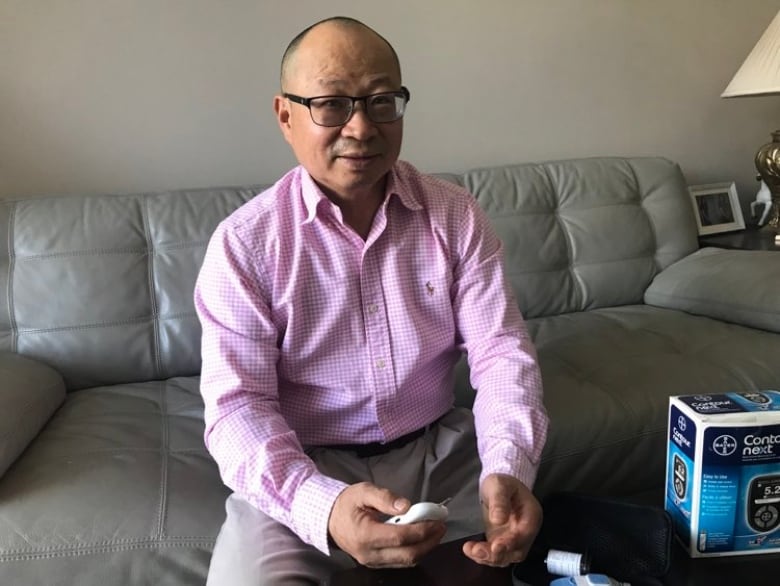Blood
FIRST PERSON | My dad’s blood sugar tells me a lot as a med student. But there’s a story behind that number
This First Person article is written by Kerry Yang, a medical student who lives in Calgary. For more information about CBC’s First Person stories, please see the FAQ.
One of the first things I realized as I started medical school was the importance of numbers. Whether it’s used for understanding the severity of kidney disease or figuring out what is causing anemia, medicine is full of numbers that help with decision-making. By comparing patient values to what’s within a normal range for most people, we can get helpful clues that give us insights into what’s going on. These numbers are used to build a patient’s story. But there’s often a story behind the numbers as well.
My grandma and uncle on my dad’s side both have Type 2 diabetes mellitus. Everybody in my family knew it was only a matter of time before my dad got it as well, given the highly heritable nature of the disease and the fact that we are ethnically Chinese (people of African, Arab, Asian, Latino, Indigenous and South Asian descent have a higher risk of developing Type 2 diabetes mellitus).
For the past few years, my dad has been diligently testing his blood sugar. His fasting blood sugar is still firmly within the prediabetic zone, hovering between 6.4 to 6.9 mmol/L, but the value has been slowly creeping up to the dreaded seven mmol/L. As a medical student, I’ve been taught that this value on a fasting blood sugar test likely means the patient has diabetes.
But when I look at my dad’s blood sugar, I don’t just think about the number I see. I see the story that brought him here. An entire lifetime that has led to this exact moment.

My parents moved to Canada in 1999 — a year before I was born. Before that, my dad lived in China, under the rule of Mao Zedong and the Chinese Communist Party. I think about the stories he told me of his childhood, where his diet mainly consisted of years-old mouldy rice. Where he experienced many hunger-panged nights. Where one day, in the midst of the Cultural Revolution, his family was forced into the countryside to work, and food was sometimes so scarce that he had to forage for vegetables and roots. Where there were days that the only thing he could eat were the leaves and weeds he could find.
I think about how those experiences he faced when he was a child have played a monumental role in how he eats today. How he eats meals as if they might be his last. How he has a voracious appetite, and will constantly keep the fridge and pantry stocked with food. How he loves to eat anything with carbs, and has a massive sweet tooth that my sister and I both picked up.
I think about how this part of his story does not get told when measuring his blood sugar levels, and as his son and a doctor-in-training, I worry that without sharing his story, he will not get the nuanced care he deserves.
People are so much more than numbers. If health-care workers focus on just blood pressure or BMI or other health indicators, so much gets missed. Medical research has shown time and time again that the social determinants of health — such as childhood experiences, the neighbourhood one lives in and income levels — all play a huge role in health outcomes.
If a doctor didn’t understand what my dad faced throughout his life, they would be less likely to recommend lifestyle changes that would work best for him to manage his blood sugar. These could be strategies to change eating his behaviours, keeping in mind what he faced, or finding lower glycemic alternatives to jasmine rice that he would still enjoy and can incorporate into his Chinese cooking.

Of course, the reality is that physicians are overworked and strapped for time, so learning people’s life stories isn’t always feasible. But neither is a one-size-fits-all approach. The beauty of narrative is that it creates a context upon which a treatment plan can be tailored to, thus improving patient care.
So the next time you go to the doctor’s office, remember you are more than just the sum of your numbers. You are a person with countless stories hidden behind those numbers, waiting for their chance to be told.
Do you have a compelling personal story that can bring understanding or help others? We want to hear from you. Here’s more info on how to pitch to us.

